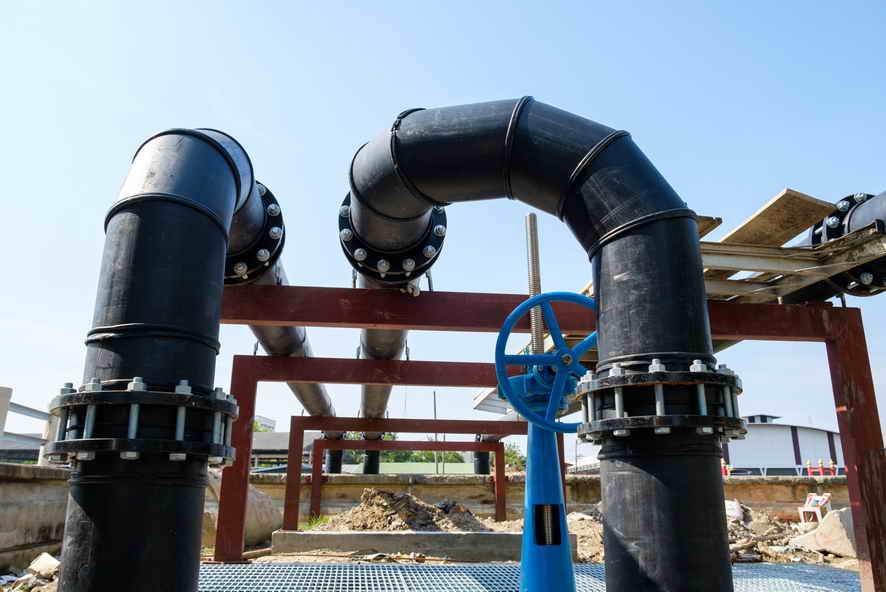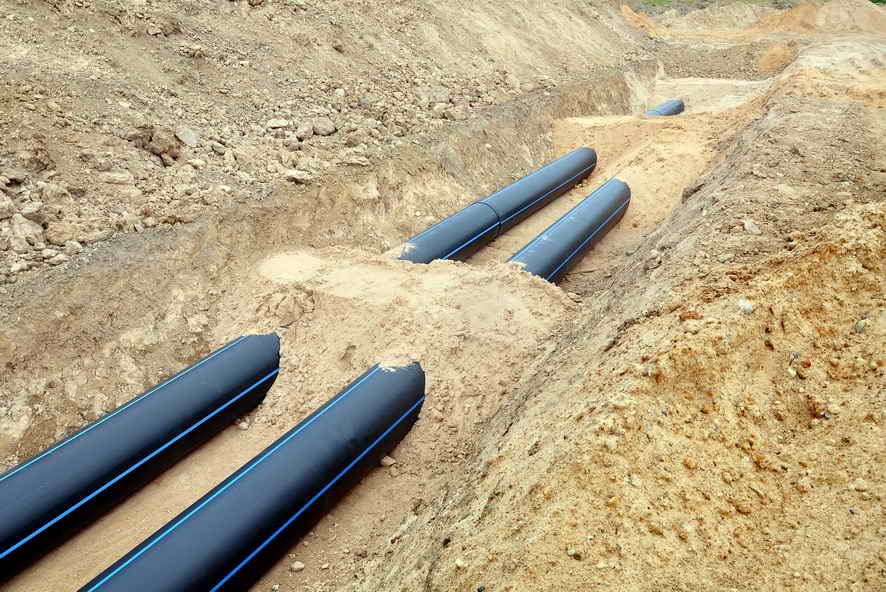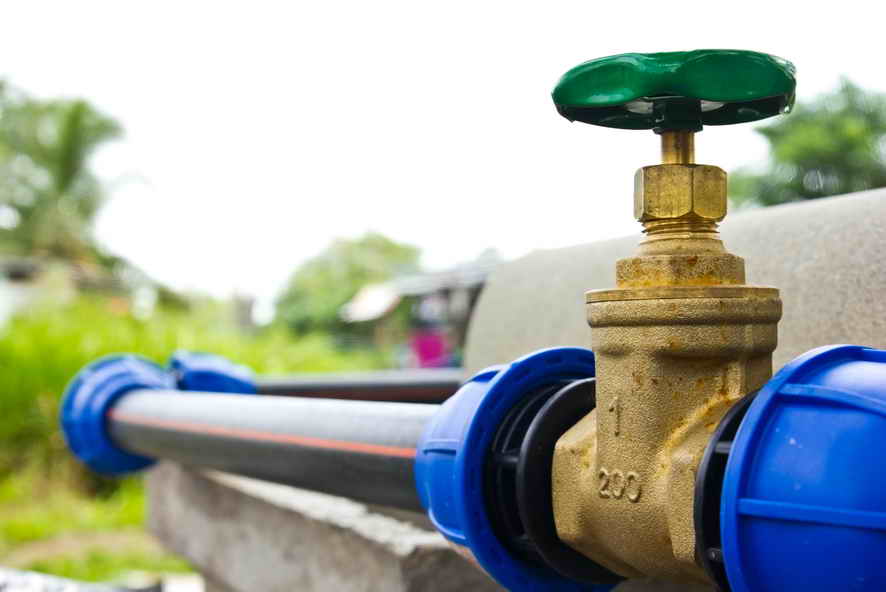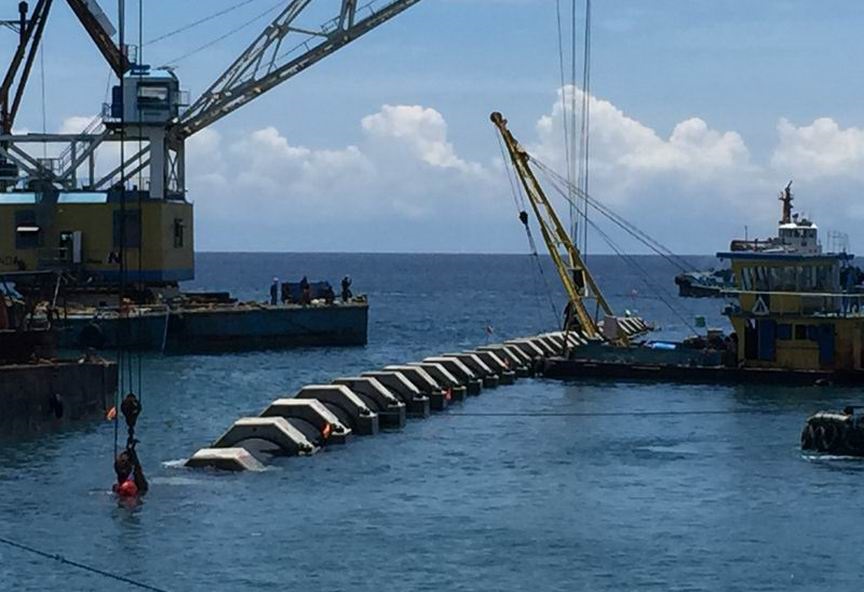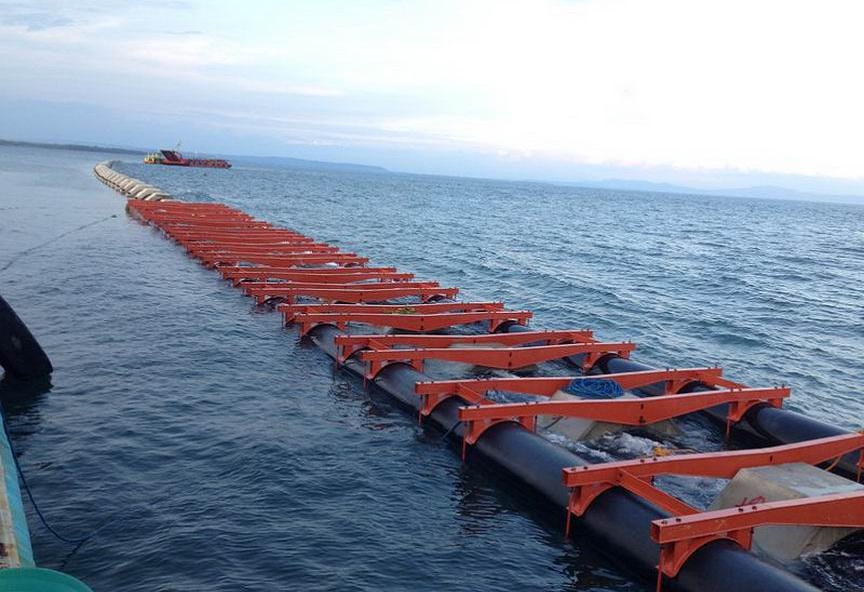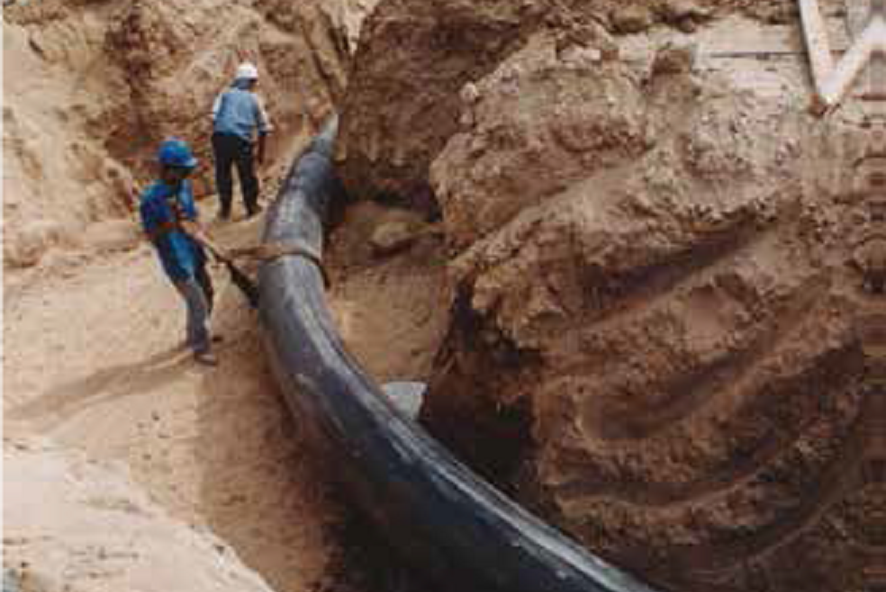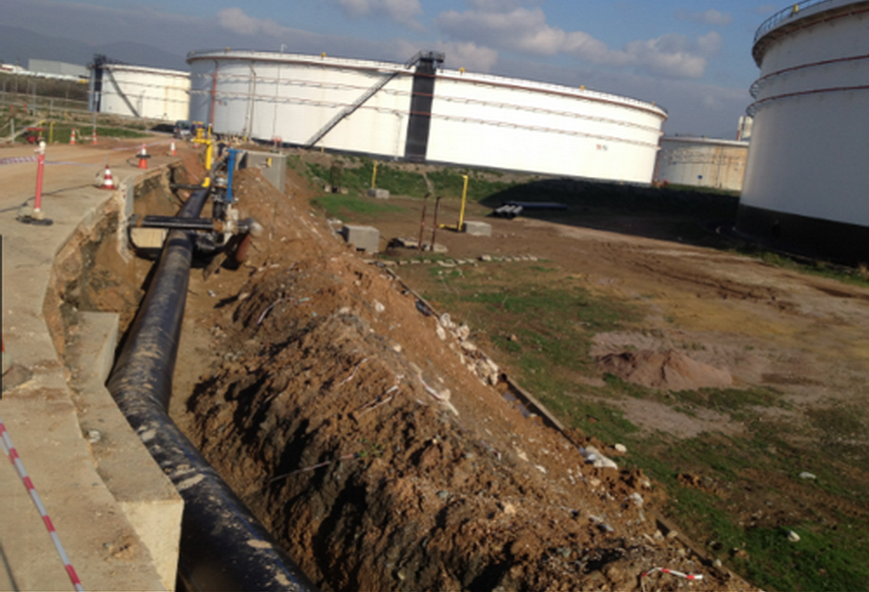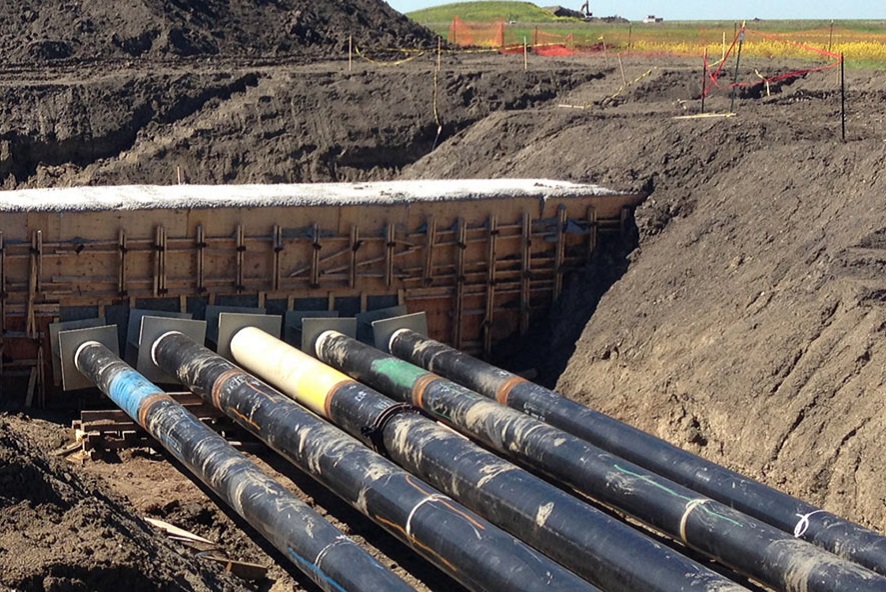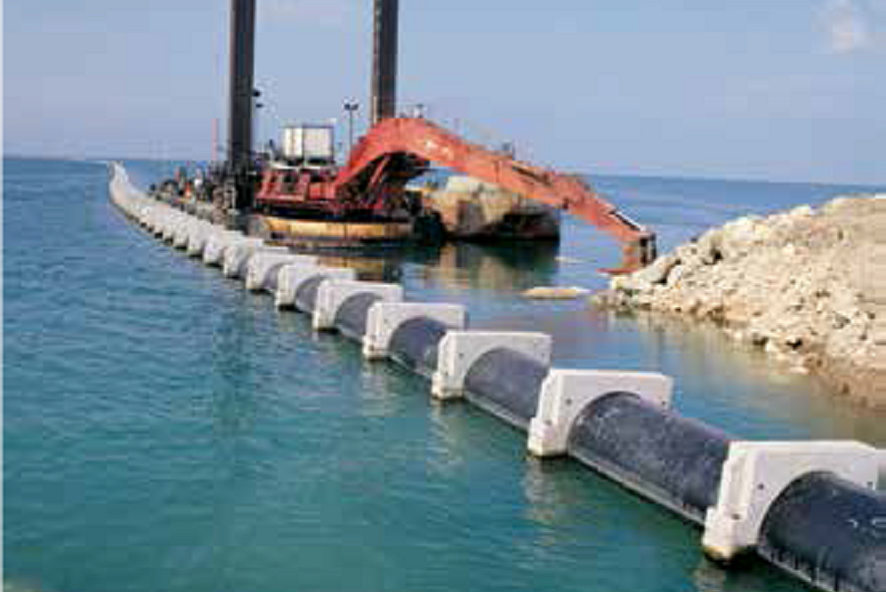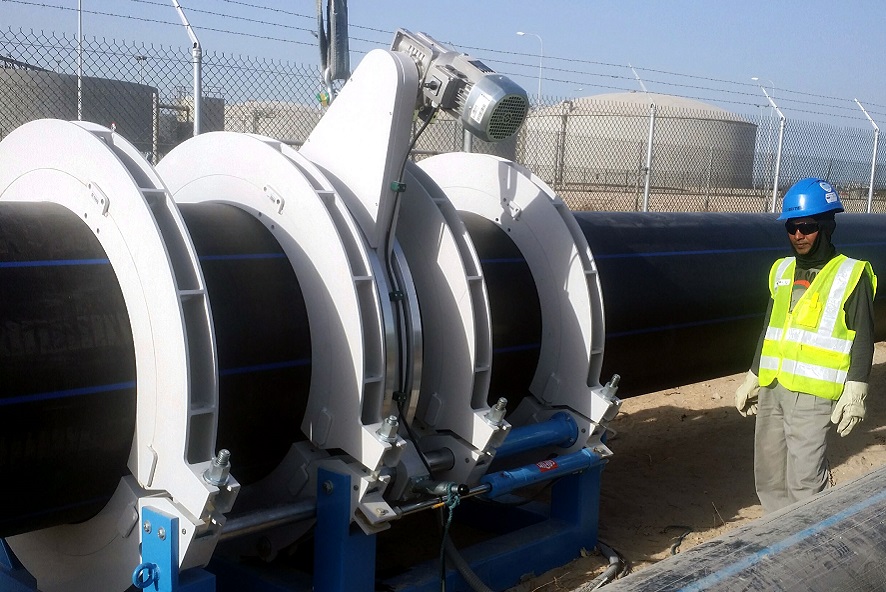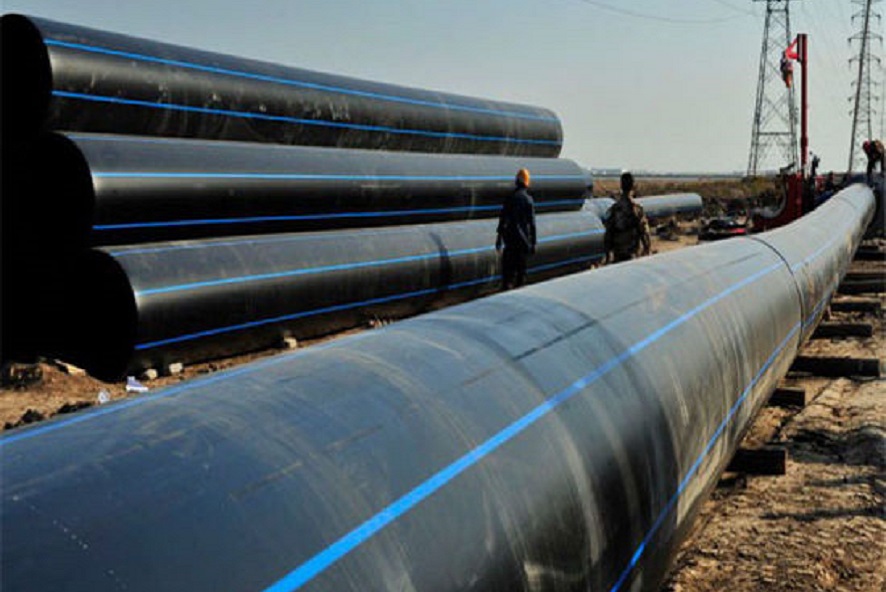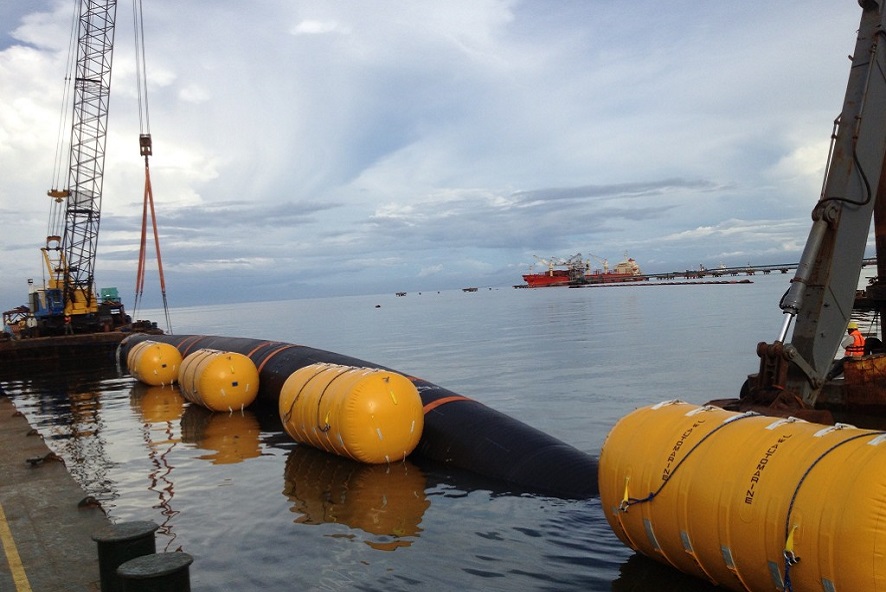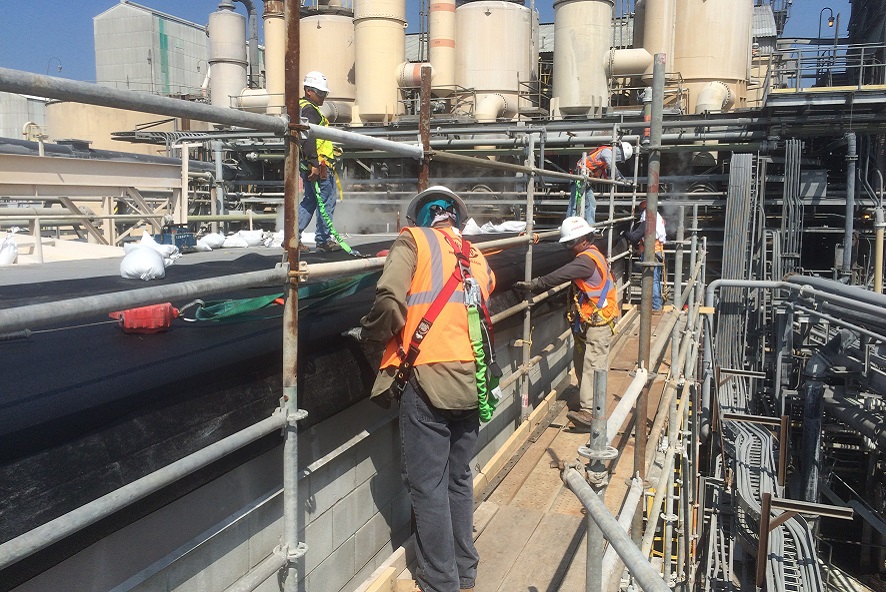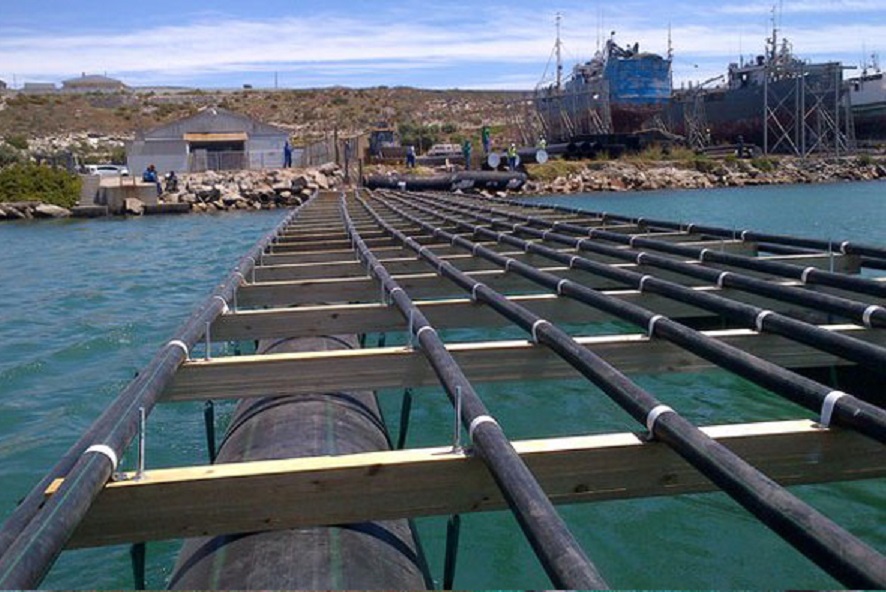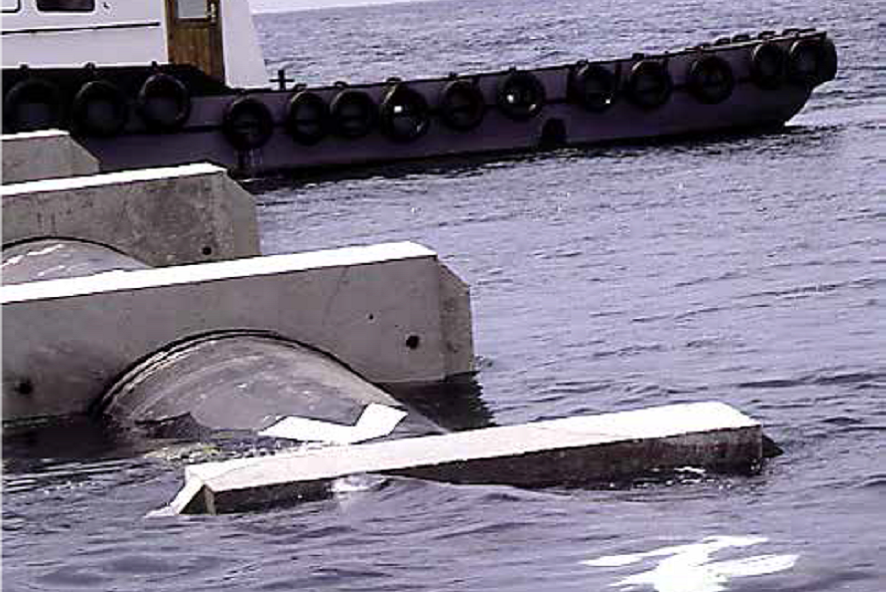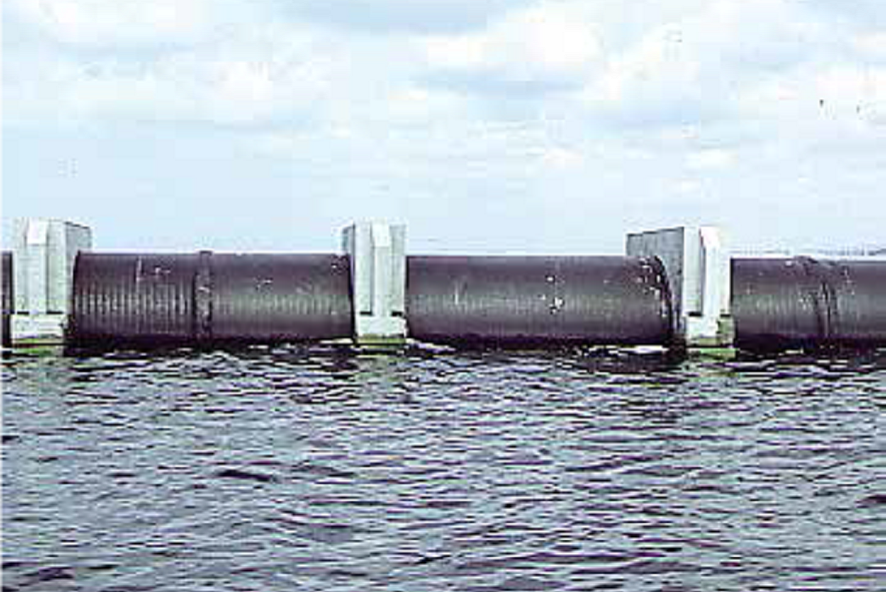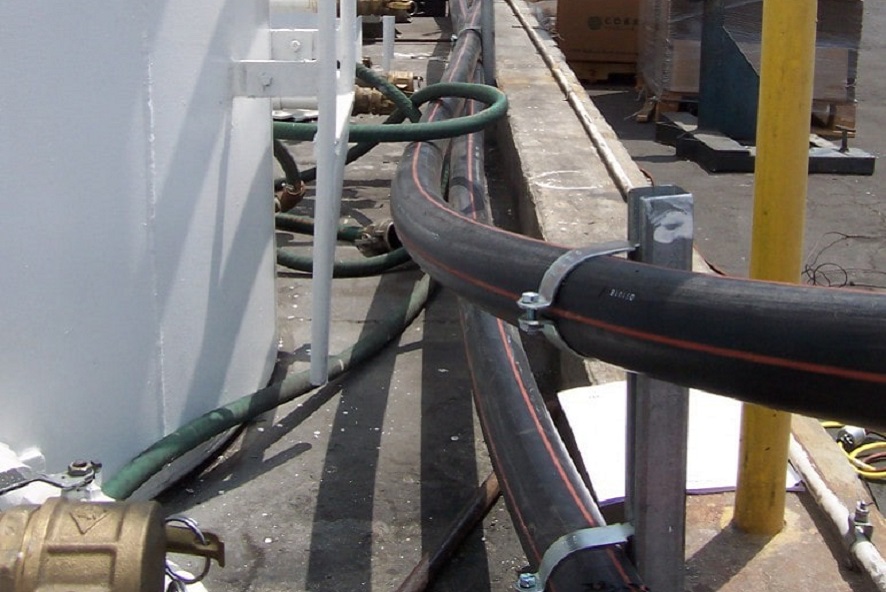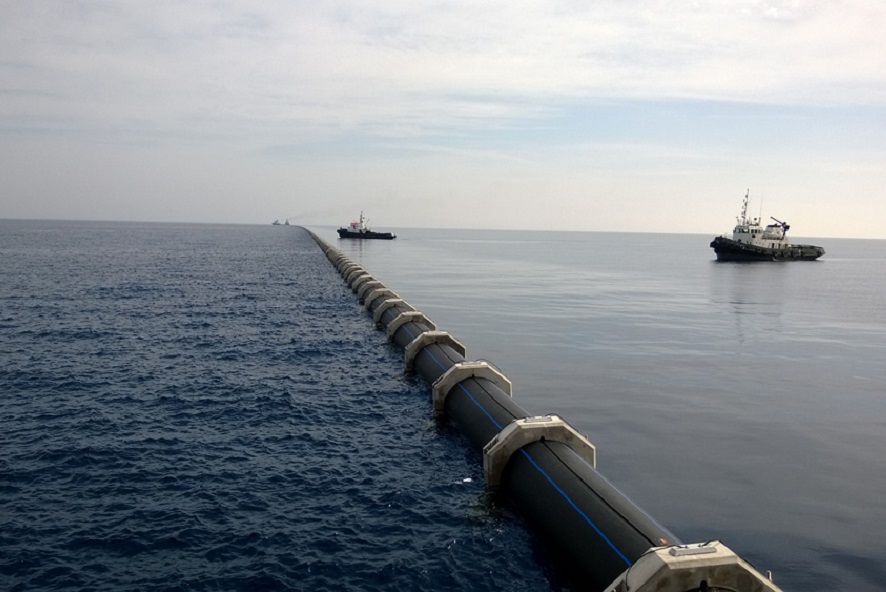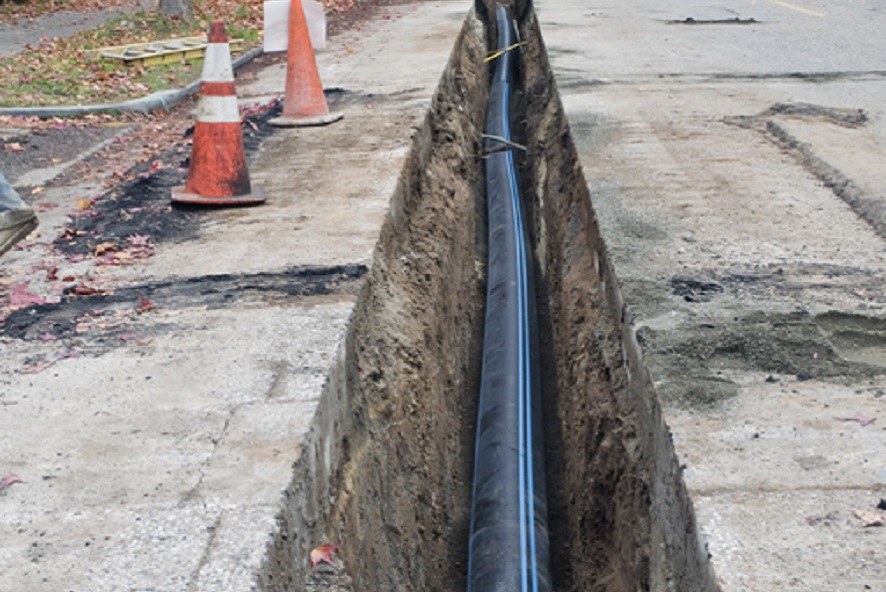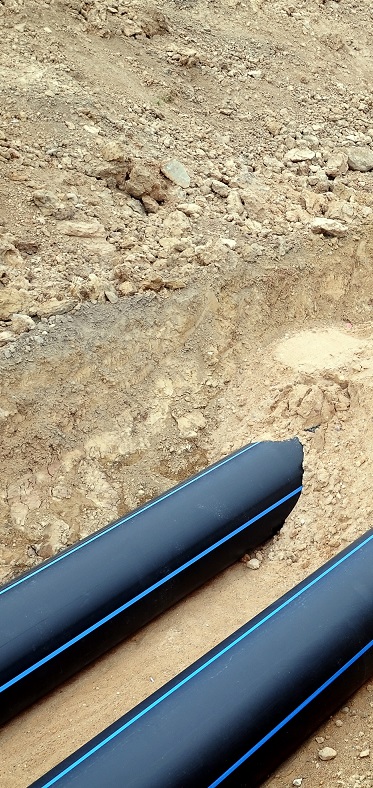
HDPE Smooth Pipe PE100
High Density Polyethylene (HDPE) pipes have been used extensively around the world since the 1950s. The unique properties of HDPE pipes offer an alternative to traditional materials like steel, concrete and clay. Polyethylene is a strong, extremely tough, and very durable product which offers long service and troublefree installation.
Properties such as impact and abrasion resistance make HDPE pipes the obvious choice in the mining and industrial sectors. Piping made from polyethylene is a cost-effective solution making it suitable for piping applications in the municipal, industrial, marine, mining, landfill, HVAC and agricultural industries. Tests prove its effectiveness for above ground, surface, buried slip-lined, floating and subsurface marine application.
HDPE PE100 pressure pipe
Piping made from polyethylene is a cost-effective solution for a range of piping applications in the municipal, industrial, marine, mining, landfill, HVAC and agricultural industries. Tests prove its effectiveness for above ground, surface, buried slip-lined, floating and subsurface marine applications. Taldeen HDPE Solid Wall PE100 Pipes can carry drinking water, wastewater, slurry, chemicals, hazardous waste and compressed gas. As a result, polyethylene pipes have a long history of successful service in the gas, oil and mining industries, as well as many others. In fact, HDPE pipes have the lowest repair frequency per kilometer of pipe per year compared with all other pressure pipe materials used for urban gas distribution.
Fitting and Accessories
Fittings are available as injection-molded, electrofusion, or segment-welded and include
- Tees/reduced tees wyes (45˚)
- Bends/elbows
- Reducers
- Flanges connections
- Saddles etc.
- Cross X
Benefits
Polyethylene pressure pipe systems offer many advantages when compared to traditional products. This includes
- Resistance to weather degradation The raw material used to make HDPE pipes contains a high percentage of carbon black. This prevents pipes from degrading when exposed to ultraviolet rays. In addition, HDPE pipes are unaffected by rain or wind.
- Chemical resistance
HDPE pipes are chemically inert so chemicals do not affect them. As the pipes do not conduct electricity, reactions that would affect performance cannot take place. HDPE pipes have excellent corrosion resistance and, as they are virtually inert, they do not need expensive cathodic protection. They offer better resistance to corrosive acids, bases, and salts than most piping materials. Natural soil chemicals do not degrade HDPE pipes in any way - Ease of handling
Conventional materials are heavier than HDPE pipes so require cranes and lifting gear. HDPE pipes, on the other hand, can often be lifted and moved by hand (for smaller dimension pipes). This makes them easier to install, particularly in confined spaces and difficult terrain. - High strength and flexibility
The material used in HDPE pipes has a high degree of impact resistance so they are robust. They are ductile which allows for savings in design as less critical angles can be achieved by easily bending the pipe. HDPE pipes can be laid across uneven surfaces and in narrow trenches. The pipes can be joined outside the trench before installation. In addition, the ability to absorb pressure surges makes HDPE pipes superior to other plastic pipe materials.Even in sub-zero temperatures, HDPE pipes perform as expected. - Resistance to abrasion
HDPE pipes are a proven solution in applications involving the transportation of very abrasive materials. They consistently outperform traditional pipe materials (such as steel and concrete) fitted with sacrificial layers such as rubber linings. As a result, HDPE pipes are used extensively in mine tailings and washing plants. - Manufactured in long lengths and coils.
- Manufactured to internationally accepted standards.
- Service performance of over 50 years.
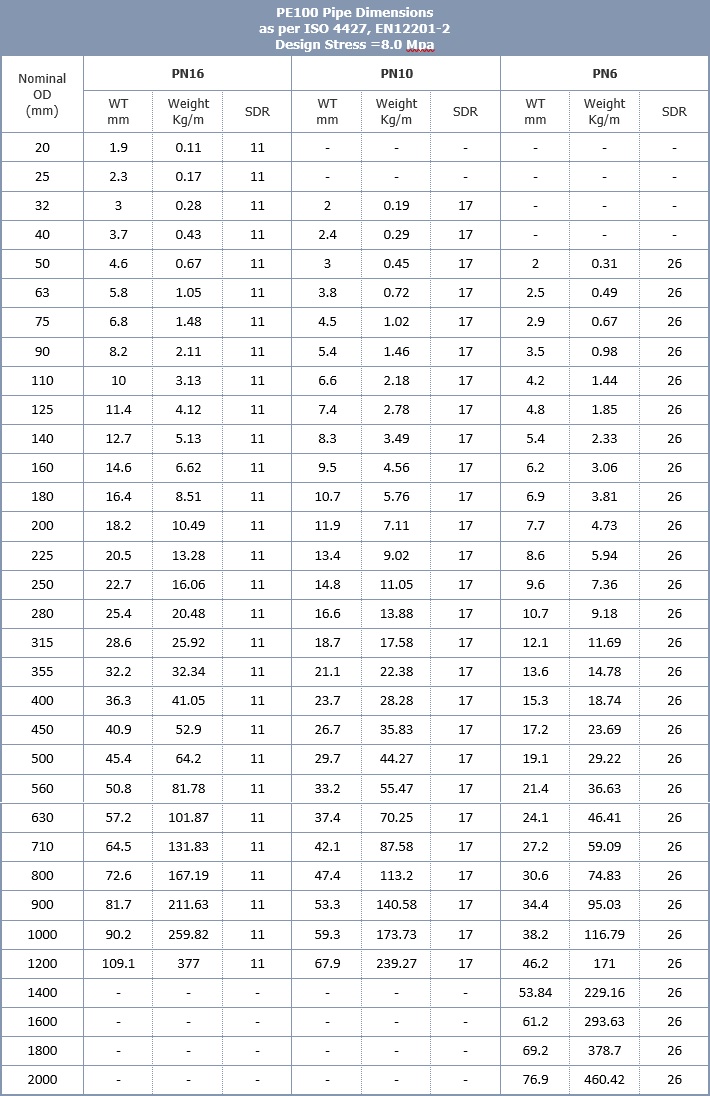
Certificates and Approvals
Taldeen pipe systems operate on the below certificates:
- ISO 2000/9001
- NSF and WRAS certificate for drinking water applications
- FM (Factory Mutual) for firefighting systems
Pipe Jointing
Taldeen HDPE PE100 pipe can be jointed using different methods. This includes
- Butt-fusion welding.
- Electro fusion welding.
- Flange connection.
The HDPE PE100 Pipe manufacturing process is as follows:
- Single screw extruders obtain the raw HDPE material.
- The extruder is heated with the temperature controlled by pyrometers. Once at the required temperature, the hopper is fed with HDPE material.
- The plasticized material comes out and is cooled while being formed into a pipe.
- The pipe is cooled by a haul-off machine at a consistent rate to ensure uniform wall thickness throughout the length of the pipe.
- The pipe then passes through a saw machine and is cut to the required length.
Markets |
Applications |
|
|
HDPE Smooth Pipe PE 100 Brochure
High Density Polyethylene (HDPE) pipes have been used extensively around the world since the 1950s. The unique properties of HDPE pipes offer an alternative to traditional materials like steel, concrete and clay. Polyethylene is a strong, extremely tough, and very durable product which offers long service and trouble-free installation.

